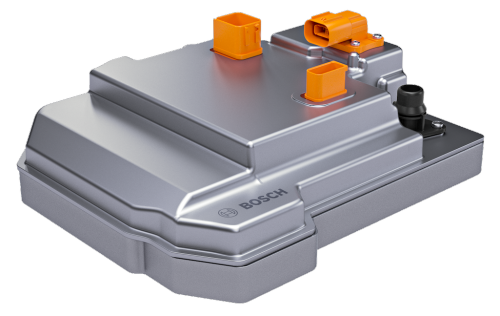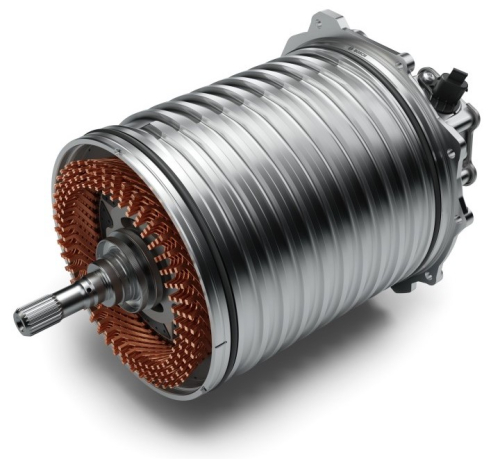The 800-volt version of the inverter is based on silicon carbide semiconductors. These increase efficiency, and thus also range. In the 800-volt variant of the electric motor, Bosch has increased the power density. This reduces weight and allows for a more compact design. A premium German automaker is now using the active parts of this powertrain—i.e. the rotor and stator—for the first time.

Inverter with 800-volt technology goes into series production
In recent years, 400-volt solutions have become widely established as the industry standard. With the same current, but double the voltage, twice as much power can now be transmitted. This modification allows for thinner cables, which saves on space, weight, and copper. As a result, the inverter is more compact and powerful. With a 400-volt onboard network, the maximum charge power at charge spots that are powerful enough is 250 kW. With 800 volts, twice this is possible in theory.
In addition, the inverters feature SiC chips, in which carbon atoms have been introduced into the crystalline structure of the ultrapure silicon. This improves the semiconductors’ electrical conductivity. In power electronics, moreover, 50% less energy is lost in the form of heat. The SiC chips also increase the inverters’ efficiency to as much as 99%.

Active parts (rotor and stator) of 800-volt technology for electric vehicles
The standout features of the 800-volt variant of the Bosch electric motor now going into volume production are 830 N·m torque and 460 kW output. Due to the use of I-pin bar winding, the motor’s efficiency, compactness, and level of automation in production can be further improved.
In terms of power-to-weight ratio, this delivers 35% more power density, at 60 kW/kg. On top of this, it offers an excellent torque density of 105 N·m/kg. The Bosch motor achieves a maximum efficiency of up to 98%. The next generation of the electric motor will feature oil cooling. This will allow the heat generated in the electric motor to be drawn away better, and ensure continuously powerful operation over long distances, as well as in commercial vehicles.